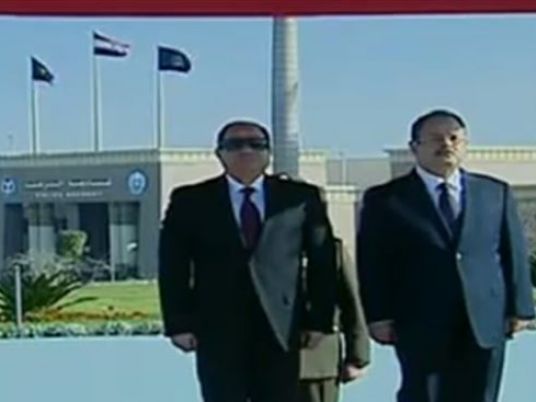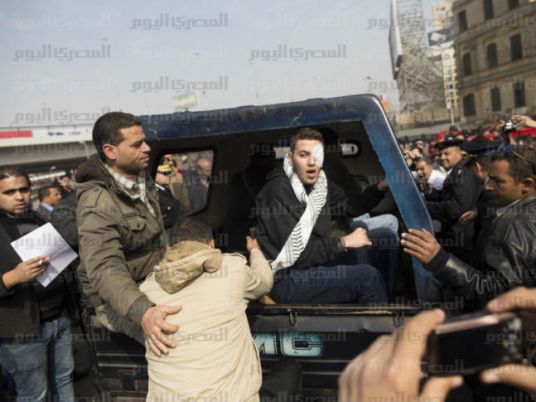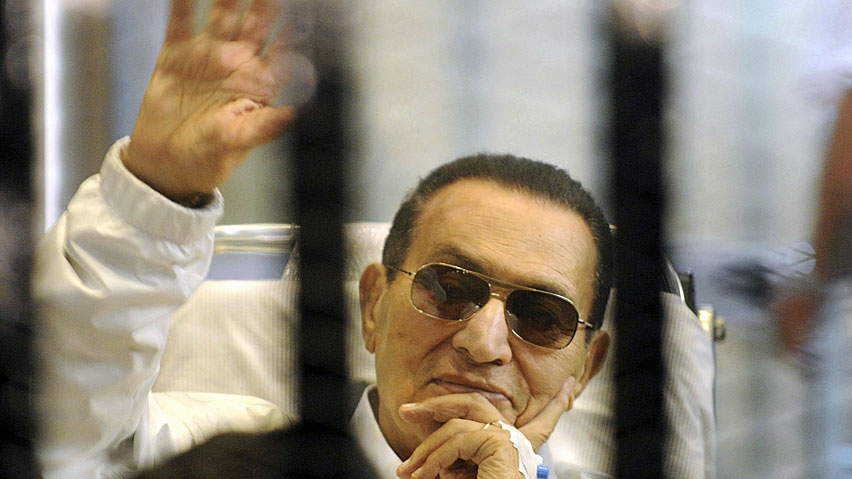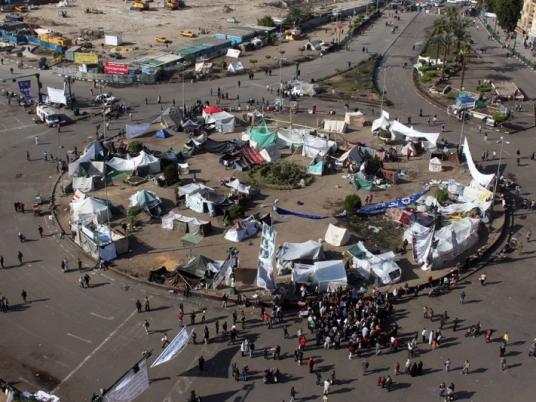With evening curfews still in effect, the 14-kilometer drive from Garden City to Heliopolis takes three hours on average. And, for better or worse, the main reason for the delay is the popular committees that have mushroomed all over the city.
The popular committees are ad-hoc, self-appointed groups, the function of which is to protect neighborhoods amid the security vacuum that followed the withdrawal of police on 28 January. On that day, protesters demanding the ouster of President Hosni Mubarak overwhelmed riot police after a daylong battle that involved rubber bullets, tear gas and water cannons.
The appearance of the popular committees was no less spontaneous than were the nation-shaking protests. They erected barriers to stop passersby and cars, which they stopped and searched after curfew. They check destinations against drivers' ID cards before eventually letting them go. They set up keywords to coordinate searches within neighborhoods, and come up with signals to indicate whether a car has been checked.
Ahmad Abdeen, an engineer from Cairo's Nasr City neighborhood, was quick to assume leadership of the popular committees in his area, which was one of the first to be targeted by looters on 28 January. “Circumstances proved that Egyptians are innovative and collaborative. We managed to form teams and provide security within two hours,” he said.
Reflecting on the social bonds that have been formed through the popular committees, Abdeen pointed out that divisions between Christians and Muslims, poor and rich were blurred by the committees. “Everyone works with everyone. Everyone’s work is appreciated.”
According to Abdeen, the informal network of popular committees has deepened the sense of community, which he hopes will remain intact after the current crisis is over. “Every affluent neighborhood is surrounded by a poor one. Think about it–if we managed to respond to the needs of the poor districts around us, we wouldn't be scared of thieves and robbers.”
Yet throughout the last few days, the functions of popular committees have expanded beyond the noble objectives of protecting neighborhoods and engaging the community.
At a checkpoint near Maadi (reached in an attempt to drive to Heliopolis after curfew), one popular committee member told Al-Masry Al-Youm that he had the right to confiscate cameras and footage. “Were you at the demonstrations in Tahrir today?” he asked, brandishing a crowbar. “You know, I can take away your camera and your memory cards.” Next to him, a colleague played with a huge steel knife that glimmered in the headlights.
At the Nassereya checkpoint on the road to Heliopolis, a popular committee stopped Al-Masry Al-Youm reporters and asked them to exit the car. When committee members realized they were from the independent media, they aggressively told them: “You are traitors. You will bring the country to hell.”
Journalists have been under close scrutiny in recent days, with several accounts of reporters being beaten up by pro-regime thugs or arrested and interrogated by military intelligence.
At another checkpoint in Cairo's Hussein district, also on the way to Heliopolis, a popular committee member stopped Al-Masry Al-Youm for questioning. “What we’re doing is only natural. We're safeguarding this nation. I just stopped a car carrying an Israeli. This is serious,” he said.
In the last few days, state media has promulgated the myth that the Tahrir uprising was being engineered by a combination of westerners, Iranians and Israelis, among others. Word spread quickly among popular committees.
Omar Said, reporter for Lebanese daily Al-Safir, was attacked by a popular committee on his way to the capital's Haram district, members of which, seeing him walking with foreigners, became suspicious. “We were handed over to army personnel, who blindfolded us and took us to an unknown area. I was pulled by the hair all the time and told that I was being interrogated by a ‘sovereign authority’ for 48 hours,” Said told Al-Masry Al-Youm.
According to Said, some popular committees are spreading regime propaganda. "They're convincing people that the current state of instability is caused by the uprising and the Tahrir strike,” he said.
Divisions among the public appeared when Mubarak pledged on 1 February not to run for another term in upcoming presidential elections and to amend key articles of the constitution. Many Egyptians welcomed the concessions and called for an end to the Tahrir Square protests, for the sake of national stability.
“What’s happening in Tahrir is getting more publicity than it should,” Abdeen said. “I think that they should have ended their protest when the president gave his speech on Tuesday (1 February). Protesters should go home, so that we can start working on rebuilding the nation."
The protests, however, have continued unabated–many say they're growing in size–while demonstrators remain adamant that Mubarak must go. Tahrir Square, meanwhile, is increasingly being perceived as a "liberated zone," which should not be given up for derisory concessions.




